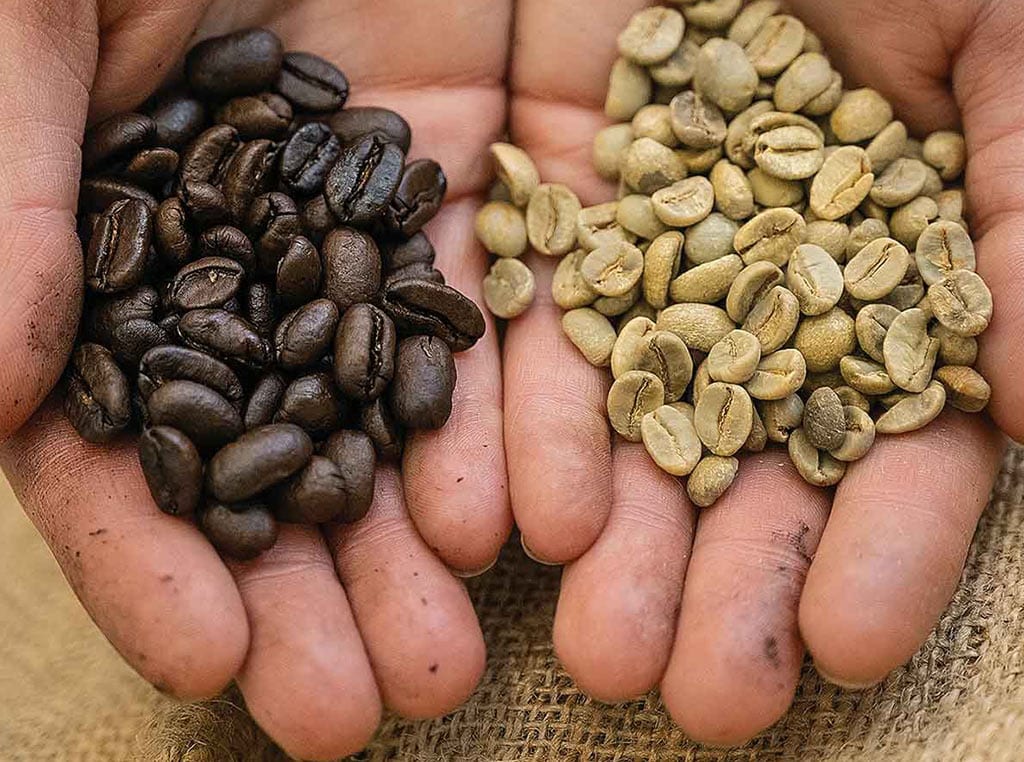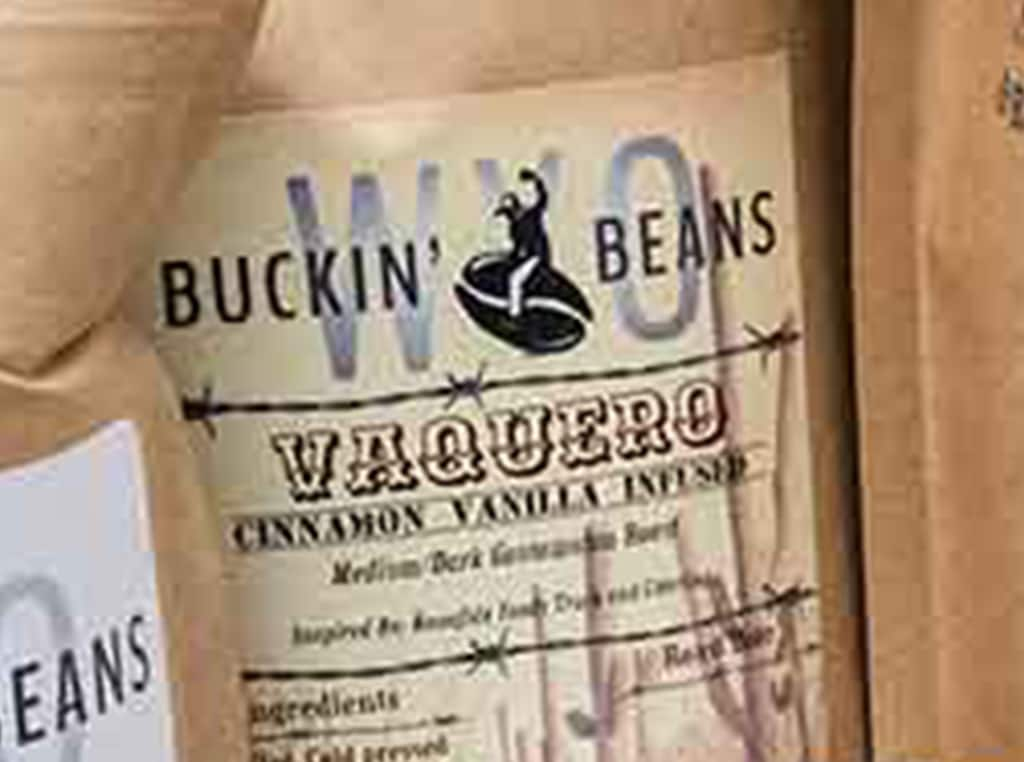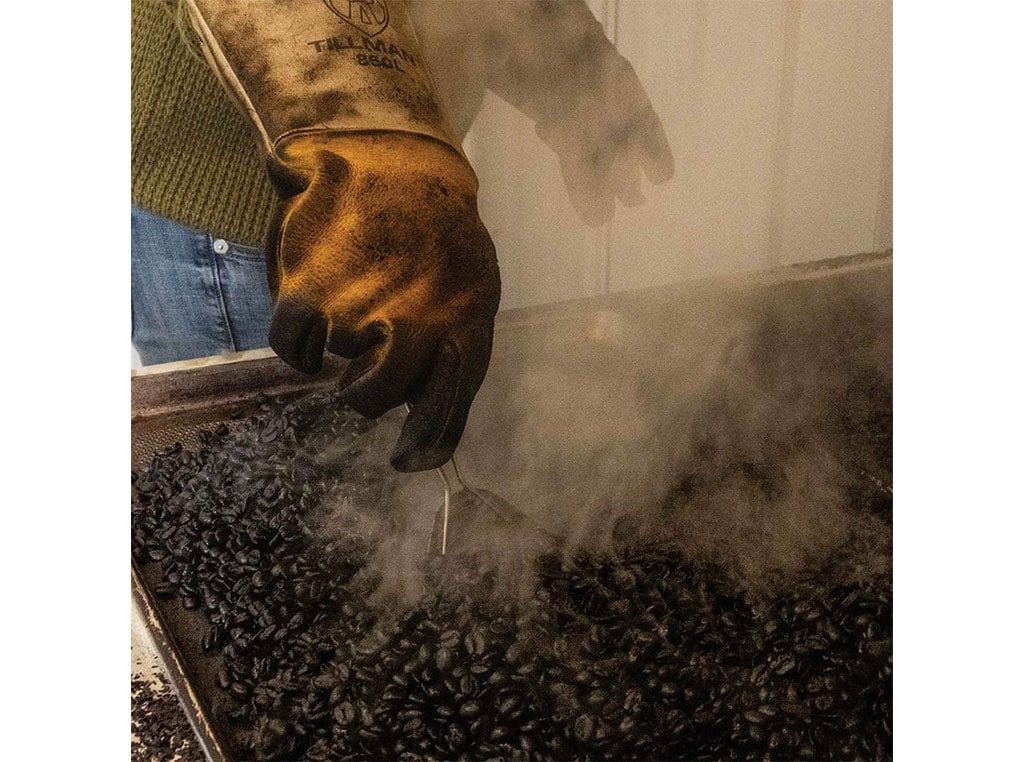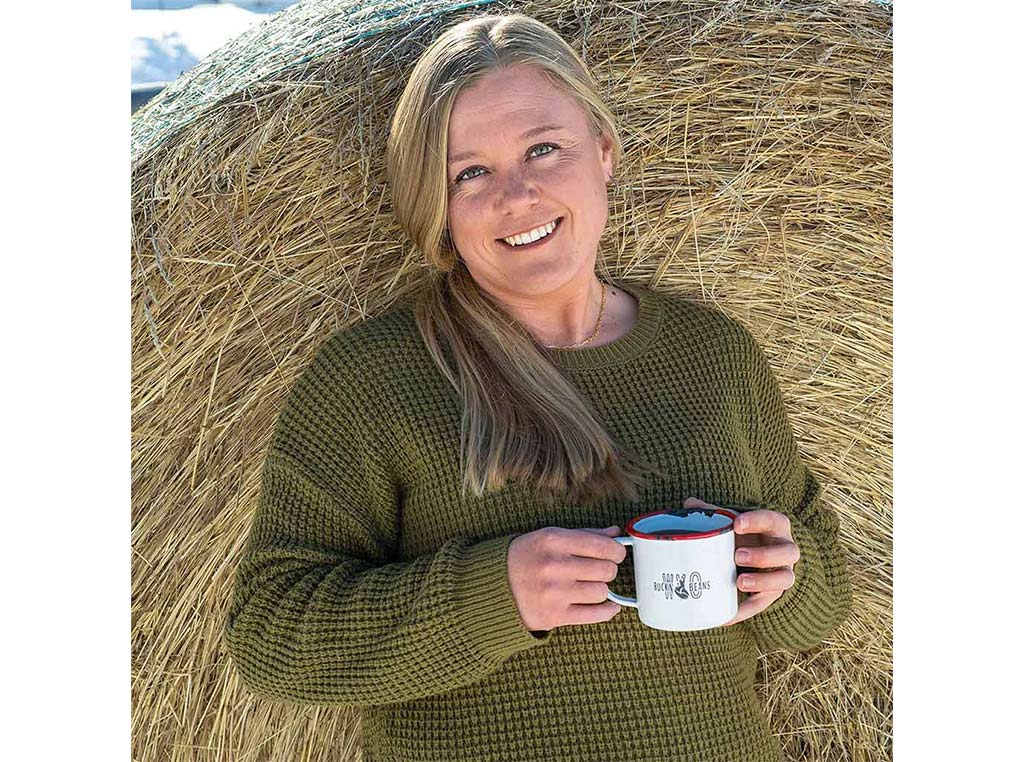Rural Living June 01, 2023
A Cowgirl's Coffee
.
Cast iron roasting keeps the family home on the range.
There was a lot of "we" thrown around in the early days of Wyo Buckin' Beans, Angie Caster says in good humor as she prepares to dump a smoking batch of coffee beans from cast iron kettle to cooling table. She—not generally we—handles the day-to-day grind of her family's Ranchester, Wyoming, coffee roasting business. A business that has grown dramatically despite initially being brewed up as a small-time side gig to help fund their rural lifestyle.
"We choose the ranching life for our family. Unfortunately, life demands money, especially when you have three kids." Her husband, Matt, has a dream job managing a cattle ranch near Sheridan, Wyoming. Despite a stunning backdrop and the ideal rural setting for raising rowdy country kids, a ranch manager income alone didn't quite cut it.
The pair had long kicked around ideas for extra income streams that wouldn't involve off-farm work. It was critical to them that Angie still get to be a full-time mom and participate in ranch life.
They wanted to move cows up the mountain as a family, be in the barn during calving and in the tractor during haying season.
One fated day, Matt and Angie's brother, Reo Barney, learned coffee beans could be roasted in a popcorn popper. An idea took root. It was a whim, but for some reason they were convinced it could be a business. Angie was unconvinced.
"It certainly wasn't a passion project for me. At the time I was content buying cans of Folgers and dumping a bunch of creamer in my cup," Angie says. Seven years later she drinks her delectable coffee black and can recite the various attributes of coffee beans from nine countries.
Each roast requires its own bean. Some produce an excellent light roast while others hold up better to the longer heating process needed for a dark roast. The Casters have found there's no perfect, consistent timing for roasting. Varying moisture levels and conditions at harvest affect the process. Angie has to rely on her senses and experience to create the perfect roast. She evaluates color, sound, and smell to determine when a batch is done.
Cowboys and coffee just belong together. And for good reason. As Angie and Matt researched starting a coffee roasting business, they discovered cowboys on the trail were coffee roasting experts back in the day.
"They would bring green coffee beans in burlap bags and roast them in cast iron pots over campfires on the range," Angie says.
Knowing how cowboys prepped their brew, Angie knew just what to do when the popcorn maker didn't survive past the first batch. She grabbed her 8-quart cast iron Dutch oven and roasted away. It proved a delicious upgrade. The cast iron somehow mitigated bitterness often found in coffee, resulting in a smooth, flavorful drink.
"I knew we were onto something then," Angie says.
Percolating customers. A hobby was born. Soon they were roasting up small batches for friends and family. The operation moved from stove to garage as word-of-mouth and farmers' markets expanded their customer base.
"I really drug my feet. I kind of liked life as it was," Angie says. The reluctant entrepreneur was soon spending hours in the garage roasting coffee.
She'd stir the batches by hand, usually in the wee morning hours before her children woke for the day.
"I prayed a lot as I was hand stirring," she says. Some of those prayers may have been to deliver her from success. She was concerned her side hustle would take over her life. Those prayers went unanswered, but she's glad for it.
"God has yet to lead me down the wrong path," she says.
The coffee was good. Demand grew. Soon, the six pounds of coffee per hour she could produce in the garage wasn't cutting it.
Purchasing a $7,500 automatic roaster capable of 10-pound batches was out of the question, too. But they needed to automate parts of the process and increase capacity if they wanted to meet demand and make money.
A fabricator, Matt stepped in to apply some cowboy logic to the problem. He mounted a 10-gallon cast iron kettle on a cart equipped with a burner and a mechanism for easy dumping.
He used the motor from their Bosch mixer—a wedding gift—to power a stirring mechanism. The new system allowed Angie to roast 25 pounds in just 40 minutes—no stirring required.
Over the years opportunity continued to drop in their lap. Soon they were in stores and coffee shops throughout Wyoming and Montana. Today she roasts 600 to 800 pounds of coffee per month in a dedicated facility. She offers nine blends including decaf and two infused roasts.
Angie works with a family who owns a coffee farm in Honduras and imports coffee beans to the U.S. through their company, The Trade.
"I have a personal relationship with them. I can call them up and let them know what I'm looking for and they help me figure out the right bean for the job," Angie says. One farmer to another.
Angie dons gloves as she hears the distinct crackle indicating her dark roast is almost done. "You can't set a timer. The moisture in the beans is variable and just 30 seconds can make or break a batch," she explains. "My dark roast can, and has, started on fire!"
When she's not roasting, she's living her best country life. The Wyo Buckin' Bean website is more likely to have pictures of horses, tractors, kids, puppies, and baby calves than coffee.
"I market my family and our lifestyle, because that's why we're doing this. We bring our customers along in our lives and let them know why I need a good cup of coffee to start my day!" ‡
Read More

AGRICULTURE, SPECIALTY/NICHE
Past Meets Future
Ancient grains and new varieties meet on Washington farm.

AGRICULTURE, FARM OPERATION
A Question of Governance
Is it time for a voting board of directors?





